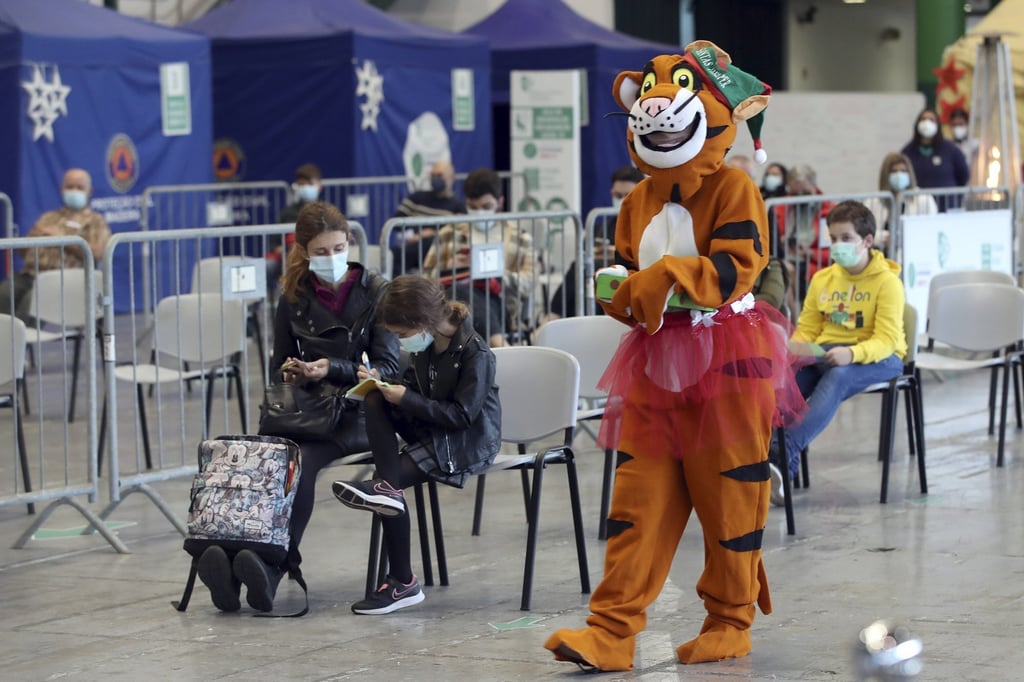Advertisement
Portugal, France to vaccinate younger children in fight against Omicron variant
- Portugal began jabbing over-fives on Saturday, while France plans to begin rolling out injections for the same age group on Wednesday, following other nations already inoculating many youngsters
- But EU health agency says vaccines alone take too long; measures like mask-wearing, distance working, preventing crowds essential to reduce burden on health care systems in time available
Reading Time:2 minutes
Why you can trust SCMP

Portugal, one of the countries with the highest Covid-19 vaccination rates worldwide, began inoculating over-fives on Saturday, and France said it was ready to roll out jabs for them from next week.
Europe is currently battling to rein in the spread of the highly mutated Omicron variant of the coronavirus, believed to be much more infectious, and EU chief Ursula von der Leyen has warned the new strain could be dominant in Europe by mid-January.
A number of countries have already opened up their immunisation drives to younger children, even though the EU’s health agency has warned that jabs alone will not be sufficient to stop the variant’s rise.

In Portugal, where 88.9 per cent of the population is vaccinated, more than 60,000 children aged between five and 11 were set to receive their first jab of the Pfizer Covid-19 vaccine this weekend.
Advertisement
And in France, health minister Olivier Veran said jabs will start to be administered to children in the same age group from Wednesday.
“If all goes well, we will start vaccination of children on the afternoon of December 22 in specially adapted centres,” he said.
Advertisement
But even as children line up to get jabs, the EU health agency ECDC has said measures like mask-wearing, distance working and the prevention of crowds were essential to reduce the burden on health care systems in the time available, with vaccines alone taking too long.
Advertisement
Select Voice
Choose your listening speed
Get through articles 2x faster
1.25x
250 WPM
Slow
Average
Fast
1.25x
